
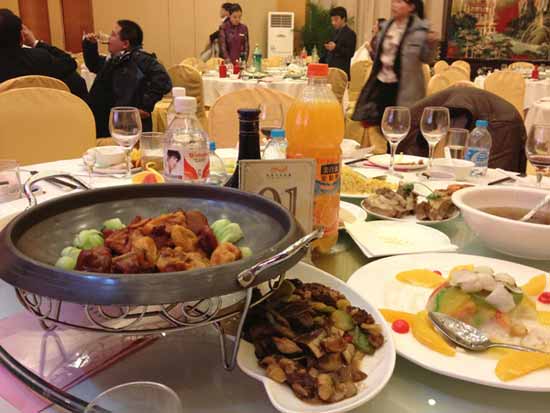 |
| Leftover dishes at an annual party for employees held at a restaurant in Beijing last month.(China Daily/ He Guang) |
Many State-owned enterprises have started to adopt modest dinners and smaller awards at their annual employee parties amid a nationwide campaign to honor frugality and reduce extravagance.
"Our annual party has been canceled," a staff member of China Datang Corp, a State-owned power company, said on condition of anonymity. "In the past all employees would enjoy a party and banquet at a nearby five-star hotel, but this year we don't have them.
"More bad news is that the lucky draw that usually took place along with our annual party was also called off," she said, adding that although the company allows each department to decide whether they will hold a year-end dinner, her department has canceled its banquet.
"The biggest prize in last year's lucky draw was a 3D television worth nearly 5,000 yuan ($800) and no employee returned home empty-handed — they usually received a fancy set of bedclothes or a pressure cooker as a gift.
"However we were told no year-end gift will be given this year and all these measures are because State-owned enterprises like ours 'must play an exemplary role in reducing extravagant activities'."
Some other State-owned enterprises maintained their year-end parties but cut costs.
"The company held its annual party for employees at the ceremony hall in the office building this year," said a marketing manager surnamed He at China Great Wall Industry Corp, a subsidiary of a defense technology company. "We used to enjoy a nice year-end party in famous tourist sites in Beijing's suburbs such as the Jiuhua Mountain Villa or other thermal spring resorts."
After this year-end party, all company executives and employees came to the company's dining hall to attend a buffet instead of satisfying their appetite with expensive dishes like in the past, he said.
The lucky draw was also simplified — the value of prizes and the number of winners was reduced.
In addition, the company has curtailed expenses on banquets for VIPs, He said, citing a recent occasion where company executives treated a senior official from Belarus in the dining hall rather than holding an extravagant feast in a luxury hotel like before.
"Though we still served him some expensive dishes and alcohol, the cost was much lower."
Meetings and ceremonies have also been simplified to reduce costs.
"The meeting of executives and heads of local divisions, which usually lasted three days, has been shortened to two days starting this year," said a female employee of the Aviation Industry Corp of China, the country's leading manufacturer of military aircraft, who also requested to remain anonymous.
"The number of attendees and organizers was decreased. We also canceled the reception banquet and welcome party for the attendees," she said, noting as far as she knows most attendees support the reduction of ceremonies and cost.
However, the staff member at Datang said despite supporting the government's efforts to eliminate extravagance, she hopes employers do not overcorrect the situation.
"To promote frugality and put away extravagance doesn't necessarily mean we have to get rid of year-end parties," she said.
Though being placed under tighter scrutiny from the public and media, a handful of State-owned enterprises still paid high prices for lavish dinners.
China Minzu Securities spent nearly 2,000 yuan ($320) for each employee at its Spring Festival party with the total cost of the party totalling 300,000 yuan, the People's Daily reported.
There are State-owned companies that even gave gold bars to employees as year-end gifts, the report said, adding Kweichow Moutai, one of the most expensive liquors in China, still remains the most popular alcohol at the banquets of State-owned enterprises this year.
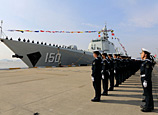


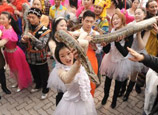
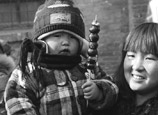

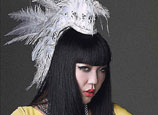
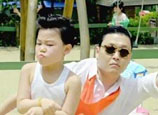
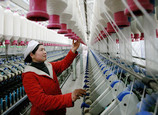







 Most feared Spring Festival questions
Most feared Spring Festival questions


![]()
